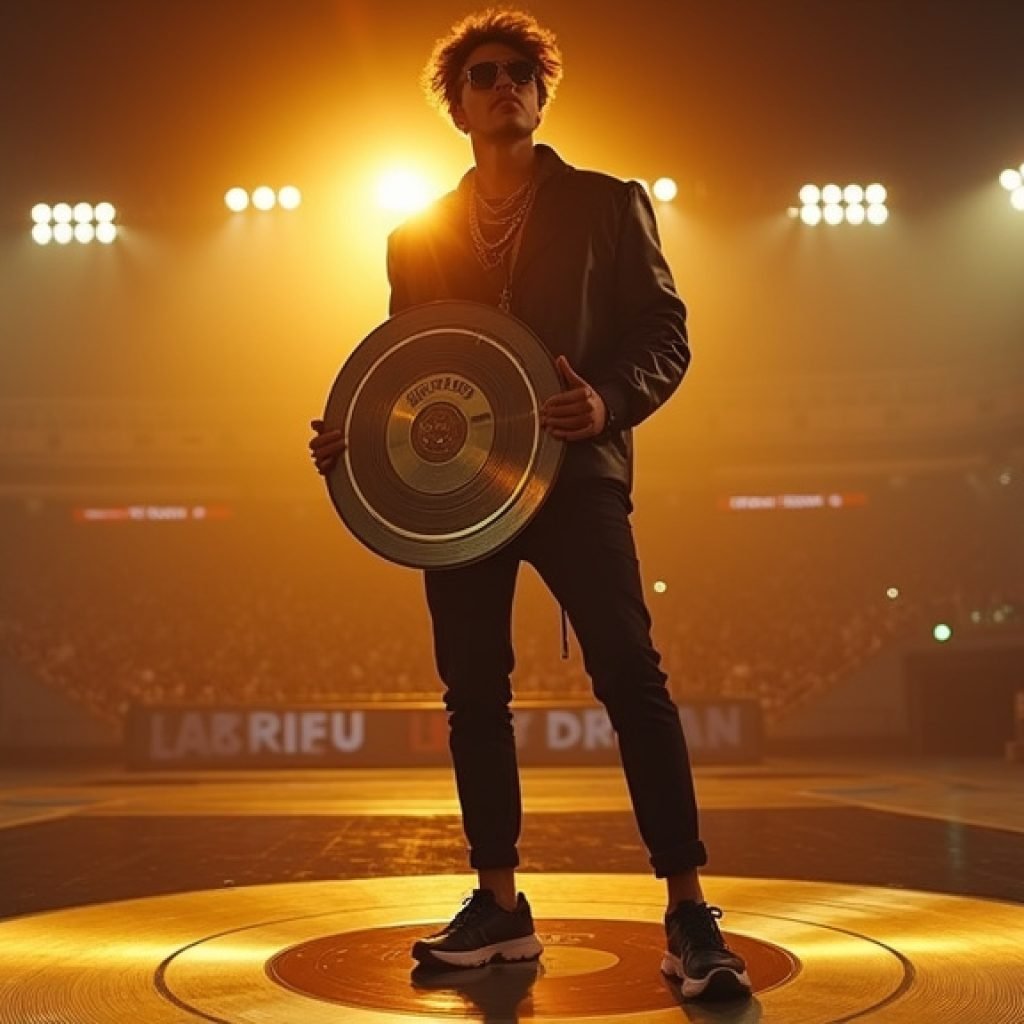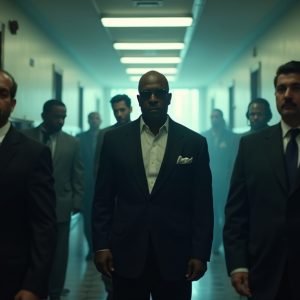The politically charged Irish rap group Kneecap delivered a defiant performance at the Rock en Seine festival outside Paris on August 24, 2025, echoing their support for Palestine with prominent “Free Palestine” chants. The concert proceeded despite objections from French Jewish groups and government officials, leading to the withdrawal of local subsidies and sparking a wider diplomatic debate. This event underscores the band’s consistent stance on global political issues, even as one of its members faces a terrorism charge in the UK.
Kneecap’s Paris Performance Sparks Controversy
The Northern Ireland-based trio, known for their blend of Irish and English lyrics and sharp political commentary, opened their set at the annual Rock en Seine festival with impassioned calls for a free Palestine. Thousands in the audience responded enthusiastically, with many displaying keffiyehs and Irish jerseys. The performance was briefly interrupted by a group of individuals who reportedly whistled in protest, but security swiftly removed them. The band later accused these individuals of being “Zionists” attempting to disrupt their show.
In response to the band’s outspoken political messaging, the municipality of Saint-Cloud, where the festival is held, withdrew its €40,000 subsidy for the event. The wider Ile-de-France region also cancelled its funding for the 2025 edition. Despite these actions, festival organizers maintained Kneecap on the lineup, with the festival director stating confidence in the group’s performance. French Interior Minister Bruno Retailleau had previously announced that authorities would be vigilant for “any comments of an antisemitic nature, apology for terrorism or incitement to hatred” during the event. Yonathan Arfi, president of the Representative Council of Jewish Institutions of France (CRIF), had called for the concert’s cancellation, stating the band was “desecrating the memory of the 50 French victims of Hamas on October 7.” The band responded to criticism by asserting that their statements were not aggressive, unlike the actions they were condemning.
A History of Political Activism and Controversy
Kneecap, composed of Mo Chara (Liam Óg Ó hAnnaidh), Móglaí Bap (Naoise Ó Cairealláin), and DJ Próvaí (J. J. Ó Dochartaigh), has built a reputation for integrating political messaging into their music and live performances. Their name itself is a reference to the paramilitary punishment of shooting victims in the kneecaps, a tactic used during The Troubles in Northern Ireland. The group consistently advocates for Irish republicanism, language rights, and has shown strong solidarity with the Palestinian cause. They have previously displayed messages at events like the Coachella Festival, stating, “Israel is committing genocide against the Palestinian people” and “Fuck Israel / Free Palestine,” leading to criticism and even death threats.
This commitment to activism has also led to significant legal and professional challenges. In May 2025, Mo Chara was charged under the UK’s Terrorism Act for allegedly displaying a Hezbollah flag at a London concert in November 2024. The band has denied these charges, calling them “political policing” and a “carnival of distraction” from the conflict in Gaza. They have also faced scrutiny over past videos containing provocative statements, though the band maintains these were taken out of context and has denied supporting Hamas or Hezbollah. Earlier in 2025, Kneecap won a discrimination case against the UK government after their funding for international promotion was rescinded due to their political views.
Diplomatic Ripples and International Backlash
The controversy surrounding Kneecap’s political statements has extended into the international arena, particularly concerning France and the United States. In the days following the Paris gig, the US Ambassador to France, Charles Kushner, penned a letter to President Emmanuel Macron expressing “deep concern over the dramatic rise of antisemitism in France and the lack of sufficient action by your government to confront it.” Kushner also argued that French government statements recognizing a Palestinian state and criticisms of Israel emboldened extremists and fueled antisemitism. France’s Ministry of Foreign Affairs swiftly refuted these allegations, deeming them “unacceptable” and summoning the US Ambassador, citing the Vienna Convention on diplomatic interference in internal affairs. This diplomatic spat highlighted broader transatlantic tensions over the Israel-Gaza conflict and the definition of antisemitism.
Kneecap’s international profile has also been marked by a ban from Hungary for three years in July 2025, with Hungarian authorities citing “antisemitic hate speech supporting terrorism.” This led to the band cancelling their planned performance at the Sziget Festival in Budapest. Subsequently, in late August 2025, the group announced the cancellation of 15 US concerts scheduled for October 2025, though the specific reasons beyond the ongoing legal issues and broader controversies were not immediately detailed.
A Defiant Stance Amidst Ongoing Scrutiny
Despite facing legal charges, funding cuts, and political pressure, Kneecap continues to use their platform to voice their political convictions. Their music, a potent mix of hip hop, Irish identity, and outspoken activism, resonates with a growing fanbase. The band’s story is one of defiance, challenging established norms and authorities, and insisting that their art and message remain a priority, even when met with significant opposition. The ongoing debate around their performances reflects broader societal discussions on freedom of speech, political expression, and the role of artists in addressing global conflicts. As their legal cases continue and political tensions surrounding the Middle East remain high, Kneecap’s journey through the music industry is intrinsically linked to their unwavering, and often controversial, political stance, making them a significant topic in contemporary music and public discourse.

























